Internet safety

ACL tips for staying safe online
The internet is now a big part of our day-to-day lives. However, as useful as it is, it's important to be aware of any risks and to know how to protect yourself when online.
Good practice and general safety advice
- Make sure that your device is secure. It is essential that it is protected by a firewall and by up-to-date anti-virus and anti-spyware software.
- Use only secured and trusted networks where possible. Open networks like those in coffee shops and train stations have little security, making it is easier for scammers and others to see and intercept your data.
- On websites, look out for small padlock/or the HTTPS in the address bar (not on the web page) when entering sensitive information such as personal information and bank details. A padlock does not mean that it is totally safe; however, it does mean that any data entered will be encrypted and will be unreadable should it be intercepted.
Online learning
- Always follow the guidance you have been given when joining online learning and ensure that your background is suitable and does not feature personal photographs.
- Pay attention to our ACL group agreements, ensure your language is appropriate and dress how you would normally in class.
- Check the best way for you to access online learning so that you don't incur surprise costs, e.g. mobile data access charges, as video utilises significant amounts of data.
- Keep your camera on during sessions and do not record or take screenshots. Your tutor is responsible for recording the session.
Social media
- Do not share anything too personal - limit what you share on social media sites, online forums and in chat rooms. You should also be careful not to give personal details away in photos either, such as the street you live on or where your child goes to school.
- Keep it private. Review your privacy settings on social media sites and online forums and where possible, set these to private. That way you can choose who sees what you post.
- Speak to family about being safe when using social media and advise them not to post personal information or talk to strangers online.
Family
Depending on their age and ability, the way you approach conversations and actions for staying safe online may be different. Here are some ways you can make sure your children and family members are using the internet in a safe way:
- Only let children use devices under your supervision (such as in a communal area of your home). Encourage them to show you what they are doing online and what apps they are using.
- Use parental controls to make sure they do not stumble across any upsetting or inappropriate content.
- Check the apps and programmes they are using to make sure they are appropriate, speak to them about talking to you before making purchases.
Finding online information
You can search for all sorts of information online by using a search engine, but they are a bit like robots, they do not check the truthfulness or the reliability of the information they find.
- You could check this by using only using reliable sites, e.g. if you interested in finding out Covid-19 information or advice, use the UK Government website or maybe the NHS website.
- Where possible, cross reference any information found against several websites and sources.
- Remember companies can pay the owners of search engines so that their pages to appear at the top of searches or as adverts called 'sponsored links'.
Find something odd - report it!
- Action Fraud is the UK's National Fraud & Cyber Crime Reporting Centre. You can report fraudulent online behaviours at: www.actionfraud.police.uk
- The Internet Watch Foundation allows you to report any child abuse or pornography sites while maintaining your anonymity at: www.iwf.org.uk
- You can report articles, images, speeches, or videos that promote terrorism or encourage violence at: www.gov.uk/report-terrorism
Please contact your tutor or ACL Safeguarding Lead Diane Ireland (01744 677327) if you have any concerns about safety of yourself or others when taking part in ACL courses online.
Interested in learning more about internet safety? Here at ACL we offer a range of courses, from workshops to short online qualifications to help you and your family stay safe online and improve your digital skills. To find out more, call 01744 677328 or email adultlearning@sthelens.gov.uk




